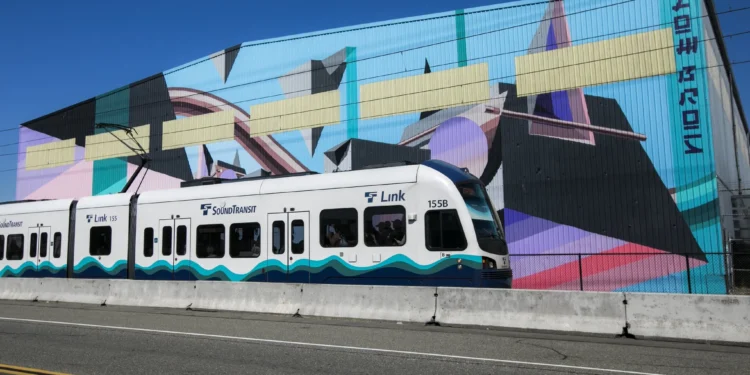Sound Transit’s West Seattle light rail extension has experienced another dramatic cost increase, with projections now ranging from $7.1 billion to $7.9 billion for just four miles of track and four stations, executives reported Thursday.
The latest estimate represents an $800 million jump from September’s already shocking $6.7 billion to $7.1 billion range. Current projections nearly double the $4.2 billion target deemed affordable in Sound Transit’s 2021 finance plan, which officials plan to revise in 2026.
Construction industry inflation, currency adjustments to 2025 dollars, and more detailed engineering assessments drove the cost escalation. Unlike previous estimates based on per-mile calculations, current figures reflect specific construction challenges including bridge pilings in unstable Sodo soil conditions.
The agency provided no timeline clarity regarding the 2032 service launch target during Thursday’s committee briefing. Board members offered no immediate solutions for addressing the funding shortfall, though discussions may occur later.
Several Sound Transit board members have questioned whether the regional “spine” connecting Everett to Tacoma deserves higher priority than West Seattle service, with some challenging the project’s overall value proposition.
The Lynnwood-Everett line also experienced cost increases, rising to $6.8 billion to $7.7 billion for 16 miles, though officials believe design modifications can restore affordability without eliminating stations.
West Seattle presents more complex challenges with limited cost-reduction options. Deputy CEO Terri Mestas and her team continue seeking more economical designs but cannot reach the original $4.2 billion target without severely truncating the line.
The most drastic option would end service at Delridge Station, serving only 17,000 daily riders compared to 24,000-27,000 with full Alaska Junction completion. Seattle City Council member Dan Strauss called this “one of the worst ideas I’ve ever seen.”
Eliminating just Avalon Station would reduce costs to $6.2 billion to $6.5 billion while avoiding home condemnations and soil retention walls. This modification would simplify tunnel construction between Delridge and Alaska Junction.
Sound Transit identified several potential savings measures. Engineers propose scrapping temporary construction detours requiring warehouse demolitions in the Sodo industrial district, instead creating permanent track configurations in existing busway space.
The Sodo station’s square footage could shrink by two-thirds, reducing deep-soil piling requirements and overall construction complexity. At Alaska Junction, modified tunnel routes could spare residential neighborhoods while shortening excavation distances.
Additional cost-reduction strategies include using precast concrete segments for elevated trackways rather than expensive on-site concrete pours, similar to techniques used crossing the Duwamish River in Tukwila.
Despite cost concerns, project advocates highlight significant benefits including 16-minute travel times from Alaska Junction to Westlake Station compared to 30-minute bus journeys, plus improved reliability when the West Seattle Bridge experiences closures or congestion.
The West Seattle extension represents part of Sound Transit’s broader $30 billion cost increase across multiple projects approved by voters in 2016, potentially pushing total agency spending to $180 billion through 2046.
Seattle Mayor Bruce Harrell recently reaffirmed regional commitments to reach both Ballard and West Seattle with rail service despite escalating costs.







